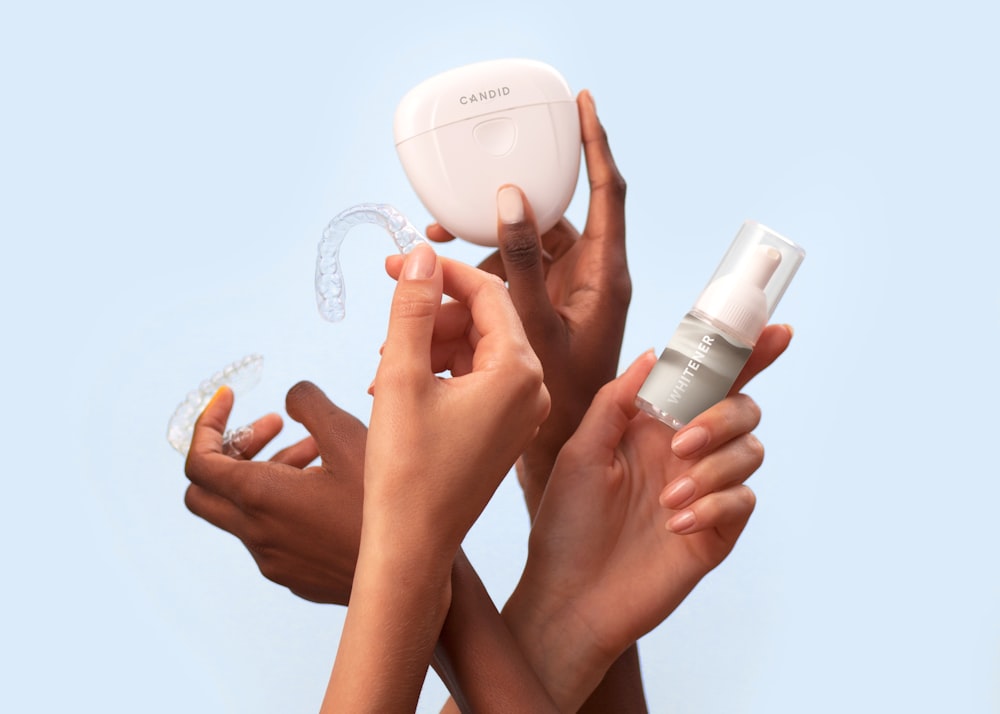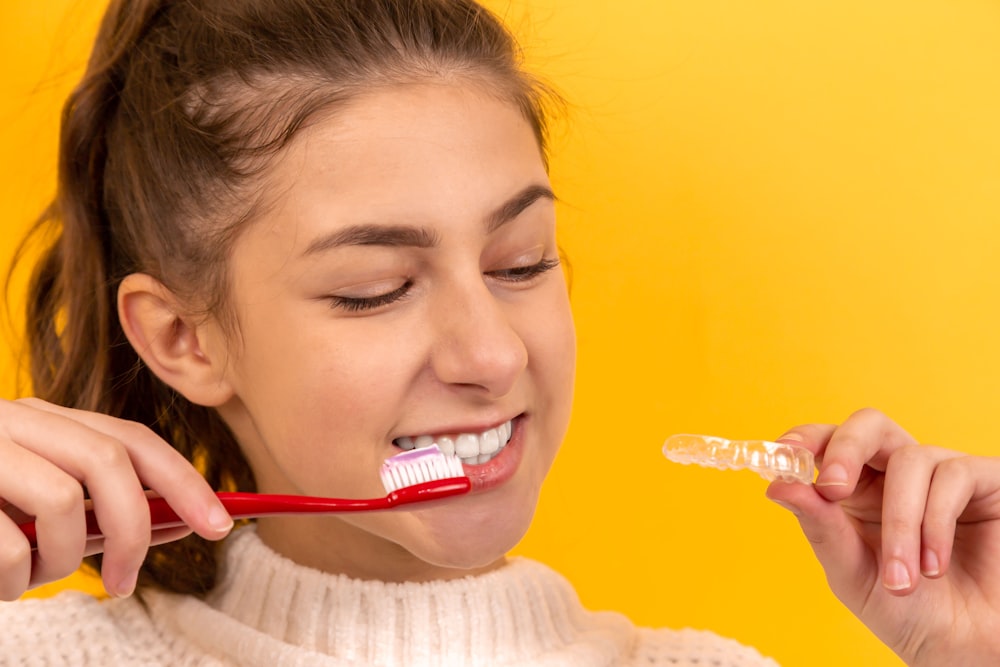
27 Jun Is there any special care required for dental crowns?

How Do You Take Care Of Your Dental Crown?
Dental crowns, also known as tooth crowns or dental caps, are custom-made dental restorations that cover and encase a damaged or weakened tooth. They are designed to restore the tooth’s appearance, strength, and functionality while also providing protection and support.
A dental crown is shaped like a tooth and is placed over the affected tooth, covering it completely from the gum line to the chewing surface. It acts as a protective barrier, reinforcing the tooth structure and preventing further damage. Dental crowns are commonly made from materials such as porcelain, ceramic, metal alloys, or a combination of these materials.
Why Are They Important?
Restoration of Damaged Teeth
Dental crowns are used to restore teeth that have significant decay, cracks, or fractures. They provide a durable, long-lasting solution to strengthen and protect damaged teeth, preventing further deterioration.
Support for Weakened Teeth
Teeth that have undergone extensive dental procedures, such as root canal treatment, may become weak and prone to fractures. Dental crowns provide stability and support to these weakened teeth, allowing patients to bite and chew without discomfort or risk of damage.
Improvement of Tooth Appearance
Dental crowns can enhance the aesthetics of a smile by improving the shape, size, and color of a tooth. They are customized to match the surrounding natural teeth, resulting in a seamless and natural-looking smile.
Protection of Dental Implants
Dental implants are artificial tooth roots that are surgically placed in the jawbone to replace missing teeth. Dental crowns are often used to restore dental implants, providing a functional and visually pleasing replacement tooth.
Reinforcement of Large Fillings
The remaining tooth structure may be compromised when a tooth has a large filling due to decay or damage. Placing a dental crown over the tooth helps to reinforce and protect the tooth, reducing the risk of further fracture or damage.
Correction of Tooth Alignment and Bite Issues
Dental crowns can be used as part of a comprehensive dental treatment plan to correct tooth alignment or bite issues. By reshaping and modifying the size of the affected teeth, dental crowns can help achieve a more harmonious and balanced bite.
Longevity and Durability
Dental crowns are designed to be strong and durable, with a lifespan of several years or more. With proper care and maintenance, they can withstand the forces of biting and chewing, providing long-term functionality and stability.
Care Tips for Dental Crowns
Maintain Good Oral Hygiene
Maintaining good oral hygiene is crucial for the overall health of your teeth and gums and the longevity of dental crowns. Brush your teeth at least twice a day using a soft-bristled toothbrush and fluoride toothpaste. Pay special attention to the gum line and the area where the crown meets the natural tooth. Flossing once a day is also important to remove plaque and debris between teeth.
Avoid Hard or Sticky Foods
While dental crowns are designed to be strong and durable, they are not indestructible. Avoid chewing on hard foods such as ice, hard candies, or popcorn kernels, as they can potentially damage or dislodge the crown. Additionally, sticky foods like chewing gum or caramel can get stuck to the crown, causing it to become loose. It’s best to exercise caution and opt for softer foods to preserve the integrity of your dental crown.
Protect Against Teeth Grinding
Teeth grinding, also known as bruxism, can pose a risk to dental crowns. The excessive force exerted during grinding can lead to cracks or fractures in the crown. If you grind your teeth, wearing a nightguard while sleeping is advisable. A nightguard acts as a protective barrier, absorbing the forces generated during grinding and preventing damage to both the natural teeth and the dental crown.
Schedule Regular Dental Check-ups
Regular dental check-ups are essential to monitor the condition of your dental crowns and address any potential issues early on. During these visits, your dentist will examine the crown, assess its fit, and make sure there is no underlying decay or damage. They may also perform professional cleaning to remove any plaque or tartar buildup around the crown and provide guidance on proper oral hygiene practices.
Avoid Staining Substances
Certain substances have the potential to stain dental crowns, compromising their appearance. To maintain the natural color and shine of your crowns, limiting your consumption of staining substances such as coffee, tea, red wine, and tobacco products is advisable. If you indulge in these items, rinse your mouth or brush your teeth afterward to minimize the chances of staining.
Be Mindful of Temperature Sensitivity
Some individuals may experience temporary sensitivity to hot or cold temperatures after getting a dental crown. This sensitivity is generally mild and should subside within a few weeks. However, if the sensitivity persists or worsens, it is important to consult your dentist. They can assess the crown’s fit and make any necessary adjustments to alleviate discomfort and ensure a proper bite.
Still Need Some Guidance?
Caring for your teeth is nerve-wracking, and you want to make sure you do it right. Here are some answers to frequently asked questions when it comes to caring for your dental crowns.
Can I brush and floss normally with a dental crown?
Yes, you can brush and floss normally with a dental crown. Maintaining good oral hygiene practices is important to prevent decay and gum disease. Use a soft-bristled toothbrush and fluoride toothpaste, and be sure to clean along the gum line and the area where the crown meets the natural tooth. Flossing should also be done daily to remove plaque and debris between teeth.
How long do dental crowns last?
Dental crowns can last anywhere from 5 to 15 years or more, depending on various factors such as oral hygiene, regular dental check-ups, and lifestyle habits. With proper care and maintenance, including regular brushing, flossing, and dental visits, you can maximize the lifespan of your dental crown.
Is getting a dental crown a painful procedure?
The process of getting a dental crown is typically not painful as it is performed under local anesthesia. However, some patients may experience temporary sensitivity or discomfort after the procedure, which can be managed with over-the-counter pain relievers. Your dentist will ensure your comfort throughout the process and address any concerns you may have.
Can a dental crown fall off?
While it is rare for a dental crown to fall off, it can happen in certain circumstances. Poor oral hygiene, decay, trauma, or an ill-fitting crown can increase the risk of crown dislodgement. If your crown becomes loose or falls off, it is important to contact your dentist immediately to have it re-cemented or replaced.
Can I eat normally with a dental crown?
Yes, you can eat normally with a dental crown. Dental crowns are designed to withstand the forces of chewing and biting. However, it is advisable to avoid excessively hard or sticky foods that can potentially damage or dislodge the crown. Maintaining a balanced diet and practicing mindful eating habits will help ensure the longevity of your dental crown.
Are dental crowns noticeable?
Dental crowns are custom-made to match your natural teeth’ color, shape, and size, making them blend seamlessly into your smile. With advancements in dental materials and techniques, crowns can be highly aesthetic and virtually indistinguishable from natural teeth. Your dentist will work closely with you to achieve a result that looks and feels natural.
Keep Your Crown Protected
Dental crowns require special care to maintain their functionality and appearance. By following proper oral hygiene practices, avoiding harmful habits, and scheduling regular dental check-ups, you can ensure the longevity of your dental crown. Remember to be mindful of what you eat, protect against teeth grinding, and address any concerns promptly. With the right care and attention, your dental crown will continue to enhance your smile and support your dental health for years to come.




Sorry, the comment form is closed at this time.